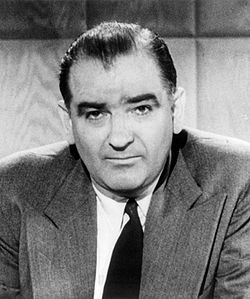This is your morning Open Thread. Pour your favorite beverage and review the past and comment on the future.
Find the past “On This Day in History” here.
February 11 is the 42nd day of the year in the Gregorian calendar. There are 323 days remaining until the end of the year (324 in leap years).
On this day in 1990, Nelson Mandela is released from prison
Nelson Mandela, leader of the movement to end South African apartheid, is released from prison after 27 years on February 11, 1990.
In 1944, Mandela, a lawyer, joined the African National Congress (ANC), the oldest black political organization in South Africa, where he became a leader of Johannesburg’s youth wing of the ANC. In 1952, he became deputy national president of the ANC, advocating nonviolent resistance to apartheid–South Africa’s institutionalized system of white supremacy and racial segregation. However, after the massacre of peaceful black demonstrators at Sharpeville in 1960, Nelson helped organize a paramilitary branch of the ANC to engage in guerrilla warfare against the white minority government.
In 1961, he was arrested for treason, and although acquitted he was arrested again in 1962 for illegally leaving the country. Convicted and sentenced to five years at Robben Island Prison, he was put on trial again in 1964 on charges of sabotage. In June 1964, he was convicted along with several other ANC leaders and sentenced to life in prison.
Mandela was imprisoned on Robben Island where he remained for the next eighteen of his twenty-seven years in prison. While in jail, his reputation grew and he became widely known as the most significant black leader in South Africa. On the island, he and others performed hard labour in a lime quarry. Prison conditions were very basic. Prisoners were segregated by race, with black prisoners receiving the fewest rations. Political prisoners were kept separate from ordinary criminals and received fewer privileges. Mandela describes how, as a D-group prisoner (the lowest classification) he was allowed one visitor and one letter every six months. Letters, when they came, were often delayed for long periods and made unreadable by the prison censors.
Whilst in prison Mandela undertook study with the University of London by correspondence through its External Programme and received the degree of Bachelor of Laws. He was subsequently nominated for the position of Chancellor of the University of London in the 1981 election, but lost to Princess Anne.
In his 1981 memoir Inside BOSS secret agent Gordon Winter describes his involvement in a plot to rescue Mandela from prison in 1969: this plot was infiltrated by Winter on behalf of South African intelligence, who wanted Mandela to escape so they could shoot him during recapture. The plot was foiled by British Intelligence.
In March 1982 Mandela was transferred from Robben Island to Pollsmoor Prison, along with other senior ANC leaders Walter Sisulu, Andrew Mlangeni, Ahmed Kathrada and Raymond Mhlaba. It was speculated that this was to remove the influence of these senior leaders on the new generation of young black activists imprisoned on Robben Island, the so-called “Mandela University”. However, National Party minister Kobie Coetsee says that the move was to enable discreet contact between them and the South African government.
In February 1985 President P.W. Botha offered Mandela his freedom on condition that he ‘unconditionally rejected violence as a political weapon’. Coetsee and other ministers had advised Botha against this, saying that Mandela would never commit his organisation to giving up the armed struggle in exchange for personal freedom. Mandela indeed spurned the offer, releasing a statement via his daughter Zindzi saying “What freedom am I being offered while the organisation of the people remains banned? Only free men can negotiate. A prisoner cannot enter into contracts.”
The first meeting between Mandela and the National Party government came in November 1985 when Kobie Coetsee met Mandela in Volks Hospital in Cape Town where Mandela was recovering from prostate surgery. Over the next four years, a series of tentative meetings took place, laying the groundwork for further contact and future negotiations, but little real progress was made.
In 1988 Mandela was moved to Victor Verster Prison and would remain there until his release. Various restrictions were lifted and people such as Harry Schwarz were able to visit him. Schwarz, a friend of Mandela, had known him since university when they were in the same law class. He was also a defence barrister at the Rivonia Trial and would become Mandela’s ambassador to Washington during his presidency.
Throughout Mandela’s imprisonment, local and international pressure mounted on the South African government to release him, under the resounding slogan Free Nelson Mandela! In 1989, South Africa reached a crossroads when Botha suffered a stroke and was replaced as president by Frederik Willem de Klerk. De Klerk announced Mandela’s release in February 1990.
Mandela was visited several times by delegates of the International Committee of the Red Cross, while at Robben Island and later at Pollsmoor prison. Mandela had this to say about the visits: “to me personally, and those who shared the experience of being political prisoners, the Red Cross was a beacon of humanity within the dark inhumane world of political imprisonment.”

 On this day in 1950,
On this day in 1950,  On this day in 1828,
On this day in 1828, 
 On this day in 1952,
On this day in 1952,
Recent Comments